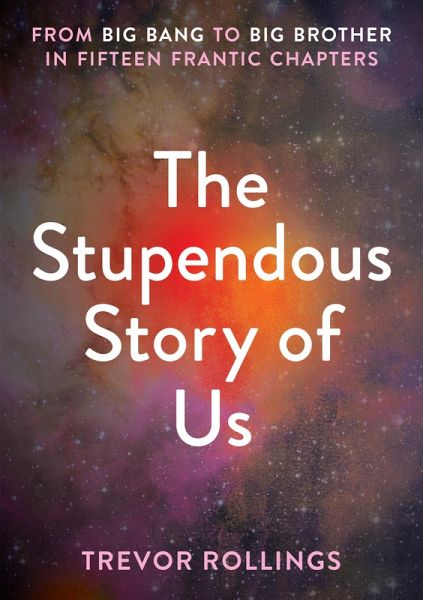
The Stupendous Story of Us (eBook, ePUB)
From Big Bang to Big Brother in Fifteen Frantic Chapters
Versandkostenfrei!
Sofort per Download lieferbar
7,50 €
inkl. MwSt.
Weitere Ausgaben:

PAYBACK Punkte
0 °P sammeln!
Where do we come from? What are we? Where are we going? These questions form the title of an 1897 painting by the French artist Paul Gauguin. He knew he was pushing the limits of human knowledge by asking them. He also knew they are not new questions. Our ancestors began to ask them on the African savannah. The Roman poet Lucretius posed them in his long poem On the Nature of Things, written just before the Christian era. He sought natural explanations for the behaviour of matter, without recourse to gods. But he also knew that the world we see is largely a creation of our mind. Since then, sc...
Where do we come from? What are we? Where are we going? These questions form the title of an 1897 painting by the French artist Paul Gauguin. He knew he was pushing the limits of human knowledge by asking them. He also knew they are not new questions. Our ancestors began to ask them on the African savannah. The Roman poet Lucretius posed them in his long poem On the Nature of Things, written just before the Christian era. He sought natural explanations for the behaviour of matter, without recourse to gods. But he also knew that the world we see is largely a creation of our mind. Since then, science has answered most of his 'how' questions, almost to the point of offering us a 'Theory of Everything'. But Gauguin's 'why' questions remain largely unanswered. They require a personal response from us, without which, as Lucretius intuited, nothing can be joyous or lovely. In The Stupendous Story of Us, we consider the narrative from all angles: our mastery of the realm of things, our exploration of our inner world, and our connectedness to each other. The pace is frantic because life is short, knowledge is infinite, and the challenges ahead are pressing.
Dieser Download kann aus rechtlichen Gründen nur mit Rechnungsadresse in A, B, BG, CY, CZ, D, DK, EW, E, FIN, F, GR, H, IRL, I, LT, L, LR, M, NL, PL, P, R, S, SLO, SK ausgeliefert werden.













